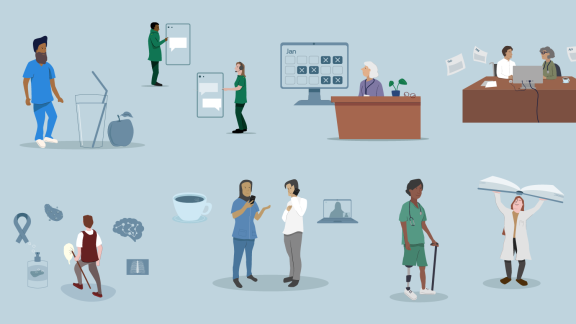Supporting disabled staff in the workplace

A disability is a condition that effects an individual’s ability to carry out normal day-to-day activities. It can be a mental health or physical condition, visible or hidden, it can last 12 months or longer, and be recurring. Access our disability infographic, hidden disabilities video, learn about the Workforce Disability Equality Standard and read guidance to help you improve the experiences of disabled staff in the workplace.
In the UK, 1 in 5 people have a disability, 80 per cent of which have a hidden disability.
Our understanding disability infographic provides an explanation of what a disability is and some of the associated health conditions and key statistics. It also includes a list of actions for organisations and managers which can help address some of the barriers that disabled staff may experience in the workplace.
Not all disabilities are visible: some are not obvious and can make everyday life demanding for so many people. Hidden disabilities are a wide range of physical and mental conditions that range from speech impediment, reduced sight, bipolar, chronic fatigue syndrome, colitis, autism, depression, and many others.



